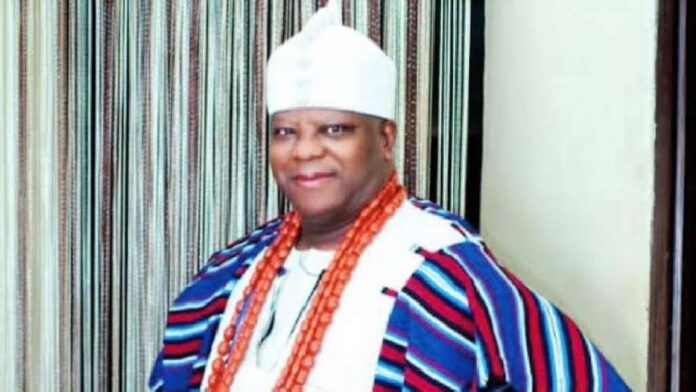A United States court has sentenced the Apetu of Ipetumodu in Osun State, Oba Joseph Oloyede, to 56 months in prison for his role in a $4.2 million COVID-19 relief fund fraud.
Judge Christopher Boyko of the U.S. District Court, Northern District of Ohio, handed down the sentence on Tuesday after Oloyede pleaded guilty to six counts, including conspiracy to commit wire fraud, money laundering, and filing false tax returns.
Oloyede, a dual citizen of Nigeria and the United States who resides in Medina, Ohio, was accused of leading a scheme that defrauded federal loan and grant programmes designed to support small businesses affected by the pandemic.
As part of the sentence, the monarch will serve three years of supervised release, pay $4.4 million in restitution, and forfeit assets, including his Medina home and nearly $100,000 seized by investigators.
Court filings revealed that between April 2020 and February 2022, Oloyede conspired with 62-year-old Edward Oluwasanmi of Willoughby, Ohio, to file fraudulent applications for loans administered by the U.S. Small Business Administration under the Coronavirus Aid, Relief, and Economic Security (CARES) Act.
The pair used multiple business entities to submit falsified applications under the Paycheck Protection Programme (PPP) and the Economic Injury Disaster Loan (EIDL) scheme, securing more than $1.7 million for Oloyede’s companies and about $1.2 million for Oluwasanmi’s businesses.
Investigators said Oloyede also filed fraudulent applications on behalf of some of his tax clients, collecting kickbacks of up to 20 per cent of the loans obtained.
He failed to declare the payments to the Internal Revenue Service.
Prosecutors told the court that the monarch spent proceeds from the scheme on land, a luxury home and a high-end vehicle.
In total, he was linked to 38 fraudulent applications worth over $4.2 million.
Oluwasanmi, his co-conspirator, had earlier been sentenced in July 2024 to 27 months in prison, a $15,000 fine, and over $1.2 million in restitution.
He also forfeited a commercial property and more than $600,000 traced to his accounts.
The case was investigated by the FBI, the IRS–Criminal Investigations, and the U.S. Department of Transportation–Office of Inspector General, under the Pandemic Response Accountability Committee Fraud Task Force.

